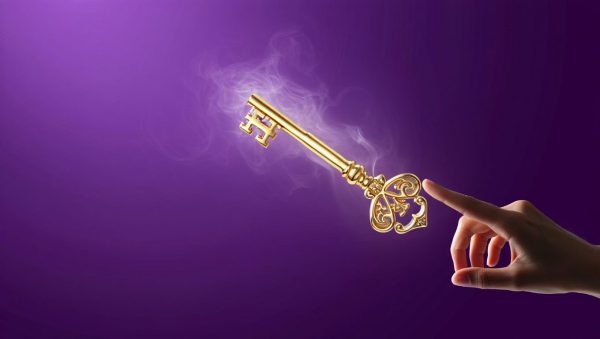
Measure My Socioeconomic Status: A Deep Dive into Core Economic Factors
Apr 16, 2025
Beware of the trap that devours nations and generations alike: fear-driven herd mentality. It is the silent architect of economic chaos, the invisible hand that pushes individuals to make irrational decisions, and the force that amplifies systemic inequality. In a world where wealth disparities widen by the day, understanding how to measure my socioeconomic status is more than a personal inquiry—it is a survival strategy. This is not just a question of numbers; it is a battle for clarity in a system designed to obscure the truth. If you’re here to dig deeper, prepare to confront the uncomfortable, to see beyond the noise, and to reclaim control over your financial destiny.
The Psychology of Economic Panic: How Fear Distorts Reality
Why do economies swing wildly from boom to bust, dragging millions into poverty while only a few emerge unscathed? The answer lies in the psychology of fear. Humans are social creatures, hardwired to follow the herd. In markets, this instinct creates self-reinforcing cycles of panic and euphoria. It is why stock market crashes happen suddenly and why bubbles grow far beyond their logical limits.
Think back to the 2008 financial crisis. Fear spread like a contagion. Homeowners defaulted en masse, banks collapsed, and global markets crumbled. The average person, gripped by uncertainty, sold their investments at rock-bottom prices, locking in losses while institutional players swooped in to buy at a discount. The herd panicked, and as history shows, the herd lost.
When you ask, “How do I measure my socioeconomic status?” you aren’t merely seeking a number. You’re asking: Where do I stand in this system of chaos? Am I a participant or a pawn? Understanding how fear shapes economic behaviour is the first step toward breaking free from its grip. The system thrives on your panic—those who resist it are the ones who rise.
Contrarian Thinking: The Key to Economic Mobility
To rise above the herd, you must think like a contrarian. The most successful investors, entrepreneurs, and visionaries share one trait: they act boldly when others are paralyzed by fear. They see opportunity in chaos, not because they are fearless, but because they understand the game.
Warren Buffett’s famous advice, “Be fearful when others are greedy and greedy when others are fearful,” encapsulates this philosophy. During the 2008 crash, while retail investors were fleeing, Buffett injected billions into companies like Goldman Sachs, profiting handsomely when the market rebounded. Similarly, during the COVID-19 market collapse, contrarian investors bought undervalued assets while the masses hoarded cash, terrified of further losses.
Contrarian thinking is not about reckless risk-taking; it is about disciplined analysis and emotional control. It requires you to step back, question conventional wisdom, and act decisively when opportunities arise. If you want to change how you measure your socioeconomic status, you must first change how you measure risk and reward. Fear is not a signal to flee—it is a signal to focus.
Fear-Driven Markets: Strategies That Work in Chaos
Fear-driven markets are not a curse—they are an opportunity. For those who understand the mechanics of volatility, these moments of panic create the perfect storm for wealth creation. The fire burns brightest when panic peaks.
Consider the strategy of selling put options during periods of extreme volatility. When markets panic, the VIX (Volatility Index) spikes, inflating option premiums. By selling puts on fundamentally solid companies, you can collect hefty premiums while positioning yourself to buy high-quality assets at discounted prices. This approach, when paired with reinvesting premiums into LEAPS (Long-Term Equity Anticipation Securities), creates a powerful leverage engine that compounds returns over time.
Think of it as turning fear into fuel. When others are paralysed, you act. When others sell, you buy. This is not guesswork—it is strategy. If you want to change how you measure your socioeconomic status, start by mastering market dynamics. The herd will always panic. Your job is to capitalise on their mistakes.
The Paradox of Wealth: Discipline vs. Chaos
Wealth is a paradox. It is born from chaos but demands discipline to sustain. The very forces that create opportunity—fear, volatility, and market inefficiency—are the same forces that destroy the unprepared. To succeed, you must balance boldness with precision, risk with restraint, and vision with pragmatism.
Take Jesse Livermore, one of history’s greatest traders. During the 1929 market crash, he shorted the market, amassing a fortune while others were ruined. Yet Livermore’s story is also a cautionary tale: his eventual downfall came not from a lack of skill but from a lack of discipline. He was consumed by the same chaos he once mastered.
To truly rise, you must build your strategy on a foundation of discipline. Diversify your investments. Set clear risk parameters. Avoid over-leverage. The fire of opportunity will always burn, but without boundaries, it will consume you. To measure your socioeconomic status is to measure your ability to navigate this paradox—to harness chaos while maintaining control.
Beyond Numbers: The True Measure of Socioeconomic Status
Socioeconomic status is often reduced to a single metric: income, net worth, or perhaps the neighborhood you live in. But this reductionist approach misses the bigger picture. True socioeconomic status is not just about wealth—it is about freedom. It is about your ability to make choices independent of fear, to act with clarity in a world of noise.
Think of it as a multidimensional field. Yes, money matters—it is the fuel that powers the engine. But so does knowledge, access, resilience, and mindset. A millionaire who is paralyzed by fear is no freer than someone living paycheck to paycheck. Conversely, someone with modest means but a contrarian, disciplined mindset is well-positioned to rise.
If you’re asking, “How do I measure my socioeconomic status?” consider this: Are you a victim of the system, or are you an architect of your own destiny? The answer lies not in your bank account but in your ability to think independently, act decisively, and harness the forces others flee from.
Conclusion: Reclaiming Control in a Chaotic System
The socioeconomic system is not designed for you to win. It thrives on fear, on herd behaviour, on the predictable mistakes of the masses. But within this chaos lies opportunity—if you are willing to break free from the patterns that trap others.
To measure your socioeconomic status is to measure your ability to navigate this system with precision. It is to ask: Am I reacting to fear, or am I exploiting it? Am I following the herd, or am I leading myself?
History favors the bold, but boldness without discipline is self-destruction. The fire of fear will always burn, but it is up to you to decide whether it consumes you or forges you into something stronger. This is your moment. The question is, will you take it?










